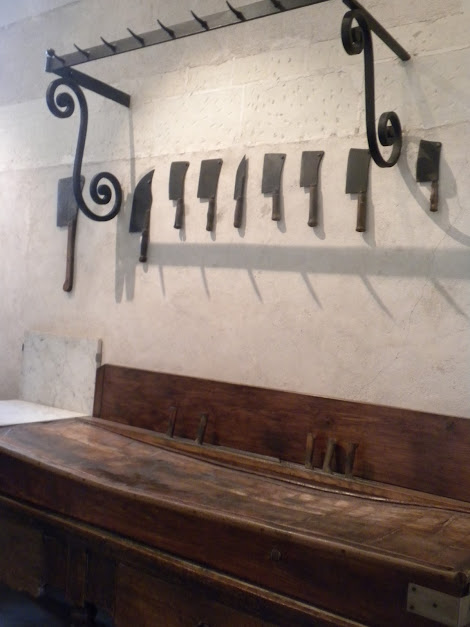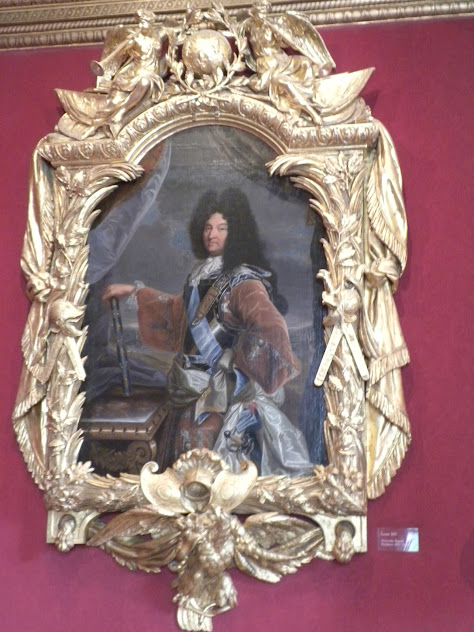“The traveler sees what he sees; the tourist sees what he has come
to see.” – G.K. Chestert
Carol writes: Even before we left Colorado, both Al
and I agreed that visiting a few of the glamorous chateaux in the Loire Valley
would probably be one of the highlights of our stay in France. For centuries this area along the Loire River
in central France has been home to numerous royalty, the rich and the
famous. Many of their chateaux were
built on the remains of cold and drafty ancient castles and fortresses, so the
area is rich in history and legend.
We decided to jump right into chateaux
frenzy by camping within walking distance of Chenonceau, reputed to be the main
jewel in chateau hierarchy. Our first
impression of Chenonceau was that it certainly had all the bells and
whistles—an elegant lane with a long tree-lined approach,
the requisite bridge approach over a
fish-filled moat,
and a huge wing of the chateau that
projected out over the Cher River flowing at its foundation.

In order to cement its place as the
granddaddy of the Loire chateaux, splendid and finely sculpted gardens are a
must, and Chenonceau had two, each one of them identified with a particular
famous female inhabitant of the chateau.
At Chenonceau these two women would be Catherine de’ Medici (whose
garden I liked the best), wife of King Henry II,
and the king’s mistress, Diane de Poitiers,
whose garden was situated in a huge plot raised above the moat so it would be
protected when the river flooded.
What I liked best about Chenonceau was
the fact that it was fully furnished with authentic pieces of furniture or
sculpture that were historically associated with the chateau, such as Diane de
Poitier’s bed
Catherine de’ Medici’s desk
and a magnificent Renaissance
fireplace.
As was customary at the time, the walls
in many of the rooms were covered in priceless 16th century Flanders
tapestries.
Many of the rooms had incredible flower
arrangements that complemented the historical setting.
One of the most interesting rooms was
the gallery, where it wasn’t hard to imagine the wonderful social events that must
have taken place in this magnificent ballroom.
From an historical perspective, I found
it interesting that this gallery was used as a hospital for the wounded in the
First World War—just like a scene out of “Downton Abbey.”
The rest of the tour consisted of the
Five Queens‘ Bedroom, in honor of the five queens who at one time or another
used this bedroom,
and finally, the kitchen and food
preparation area.
Besides the many Flanders tapestries
that decorated the walls, the chateau was filled with interesting art work that
depicted actual residents and visitors of the chateau, such as Catherine de
Medici,
Louis IX,
and King Henry III.
Finally, no granddaddy of the chateaux
would be complete without an outdoor live Italian maze.
By the end of our visit at Chenonceau,
Al and I were afflicted with a severe case of chateau fever. In every way, Chateau de Chenonceau was a
perfect introduction to French chateau living in the grandest style, and it certainly
met all of our expectations…and then some.
“Travel makes one modest. You see what a tiny place you occupy in the
world.” Scott Cameron





















No comments:
Post a Comment